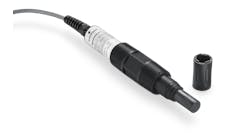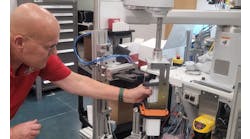Wherever you live, whatever you do, I assure you there’s a lot more going on in your neck of the woods than you can possibly comprehend. That’s what I’ve learned from a local club that I joined about 10 years ago, a group of folks who meet the second Saturday evening of each month to enjoy dinner and a 30-minute paper presentation by a member on a topic of interest. Afterward, each member is called on to critique the presentation and comment on what it means to them. The club was founded in 1904 in Valparaiso, Indiana, and claims to be the oldest of its kind in the U.S.
Our first Fall meeting this year was at Pinney-Purdue Agricultural Center, a farm donated to Purdue University by local banking magnate William Pinney in 1919. One of eight regional Purdue farm centers distributed throughout the state, Pinney-Purdue raises and harvests crops, reports weather and soil conditions, and provides a real-world laboratory for research from hybrid and variety evaluation to weed science, insect and plant disease management, vegetable production and forestry.
Operated as profit-making farm with proceeds used to fund research, Pinney-Purdue is located about three miles from the house I’ve lived in for 32 years. This this was the first I’d heard of the facility, research farms in general or the Pinney family.
Before the presentation, the attendees—ranging from my young 65 to over 90 years old—were treated to a tour in a bench-lined open trailer, towed on paths between the fields by a massive pickup truck. The acting docent showed us fields of soybeans and corn (in Indiana, what isn’t corn is beans) demonstrating subtle variations of hybrids, soil preparation, chemical treatment, etc.
A major current area of research is the effect on beans of applying sulfur and, in some cases, manganese in various forms at various times during the growing season. It seems that corn and beans haven’t been doing as well as they used to in many areas of the state, and plant and soil analyses point at sulfur, manganese and boron. Researchers theorize that lower crop yields may be due, at least in part, to reductions in air pollution from coal-fired power plants, steel mills, etc.
For example, in September, as the result of competition from renewables and a lawsuit by environmental groups, Vistra Energy announced it will close its coal-fired power plant near Peoria, Illinois, within the next three years. The announcement came less than a month after the company announced plans to close four other coal-fired plants by the end of the year.
The Peoria plant alone was responsible for 36 deaths and 238 asthma attacks a year, according to a study by the nonprofit Clean Air Task Force that relied on federally approved methods.
“This agreement shows how the energy transition already underway across the nation should move forward, ensuring cleaner air, better public health, and financial resources for the community and workers impacted by the closing,” said J.C. Kibbey, Illinois clean energy advocate for the nonprofit Natural Resources Defense Council.
As he parked the touring rig back at the white-frame, one-story “research center building,” our acting docent mentioned that the farm’s vegetable fields had raised a bumper crop of watermelons, and that while he had to leave, he’d put a mound of them in the pickup truck for us to take home if we liked.
After dinner, the presentation (on the Pinney family and the origins of our Saturday Evening Club) and our individual comments, the meeting closed and we went to the parking lot in the dark to find our watermelons. The melons were heaped up against the front of the truck bed, which was high enough that one of us would have to climb in and move them back to the tailgate.
As the youngest, I clambered up, groped in the dark, found and rolled watermelons back for easy access by my fellow club members. When I was done, feeling frisky, I jumped from the bed and nearly broke a leg.
The watermelon was delicious.
Latest from Asset Management

Leaders relevant to this article:




